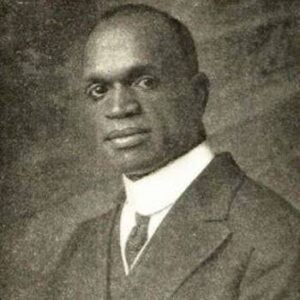
Augustus Dill
*Augustus Dill was born on this date in 1882. He was a Black Gay business manager, musician, and activist.
Augustus Granville Dill was born in Portsmouth, Ohio, to John Dill and Elizabeth Jackson. He received his B.A. from Atlanta University in 1906, a second B.A. from Harvard in 1908, and his M.A. from Harvard in 1909.
As a student of W. E. B. Du Bois, Dill was the joint editor of various scholarly pieces, including "The College-Bred American Negro" (1911), "The Common School and the Negro American" (1912), "The Negro American Artisan" (1912) and "Morals and Manners Among Negro Americans" (1914). "Morals and Manners Among Negro Americans" was a social study based on responses to surveys of Blacks across the country in 1913. It was a means to assess social progress. He was a NAACP member and manager of The Crisis and The Brownies' Book publications.
During his career in academia, he made early and major contributions to race relations in labor. A significant contribution was "The Negro American Artisan," written in part with Du Bois and Florence Kelley. "The Negro American Artisan" was an Atlanta University-sponsored sociological study covered in different Journal issues conducted from 1902 to 1912. The issues were divided into sections. The study was one of "the trained Negro laborer, his education, opportunity, wages, and work." The 31st section of the 1912 edition is entitled "The Negro and Organized Labor," wherein the two points of "(1) The attitude of Negro workmen toward labor organizations. (2) The attitude of labor organizations toward Negro Laborers" were assessed.
The authors gathered information on various unions that had by then accepted Blacks and unions from which Blacks were entirely excluded. The rest of the section notes the attitudes of different states on African Americans in unions. In the next section, the attitude of the African Americans was assessed. Some African Americans believed in unions; others did not. The study brings to light the racial inequalities faced by the Black labor force from 1902 to 1912.
After Reconstruction, the two prevailing schools of thought regarding the education and labor of Blacks were those espoused by Du Bois and Booker T. Washington. These two scholars had opposing ideas on how African Americans should fight for equality. Washington believed in industrial education and put aside concerns about civil rights until after Black economic advancement was achieved. At the same time, Du Bois believed in a classical education. They envisioned a future wherein educated African Americans, whom he called the "talented tenth," would lead African Americans out of inequality. Granville is an example of the "talented tenth" Du Bois believed in.
Dill's contributions were mostly made by organizing rather than being a part of labor unions. Dill's efforts also signify the African American contribution to labor. With his education, he advanced in the ranks of the NAACP as editor of The Crisis. He helped gain recognition for the racial inequalities present in employment and labor. He never married and, in 1928, was arrested for homosexual activities.
After being arrested by vice-squad detectives in 1928, Dill was fired from The Crisis by W.E.B. Du Bois and largely withdrew from literary activities. He earned his living after that by playing the piano and giving music lessons. Dill was an acquaintance of Langston Hughes. He died at age 73 in Louisville, Kentucky, where he had moved in 1951 to live with his widowed sister on March 8, 1956.